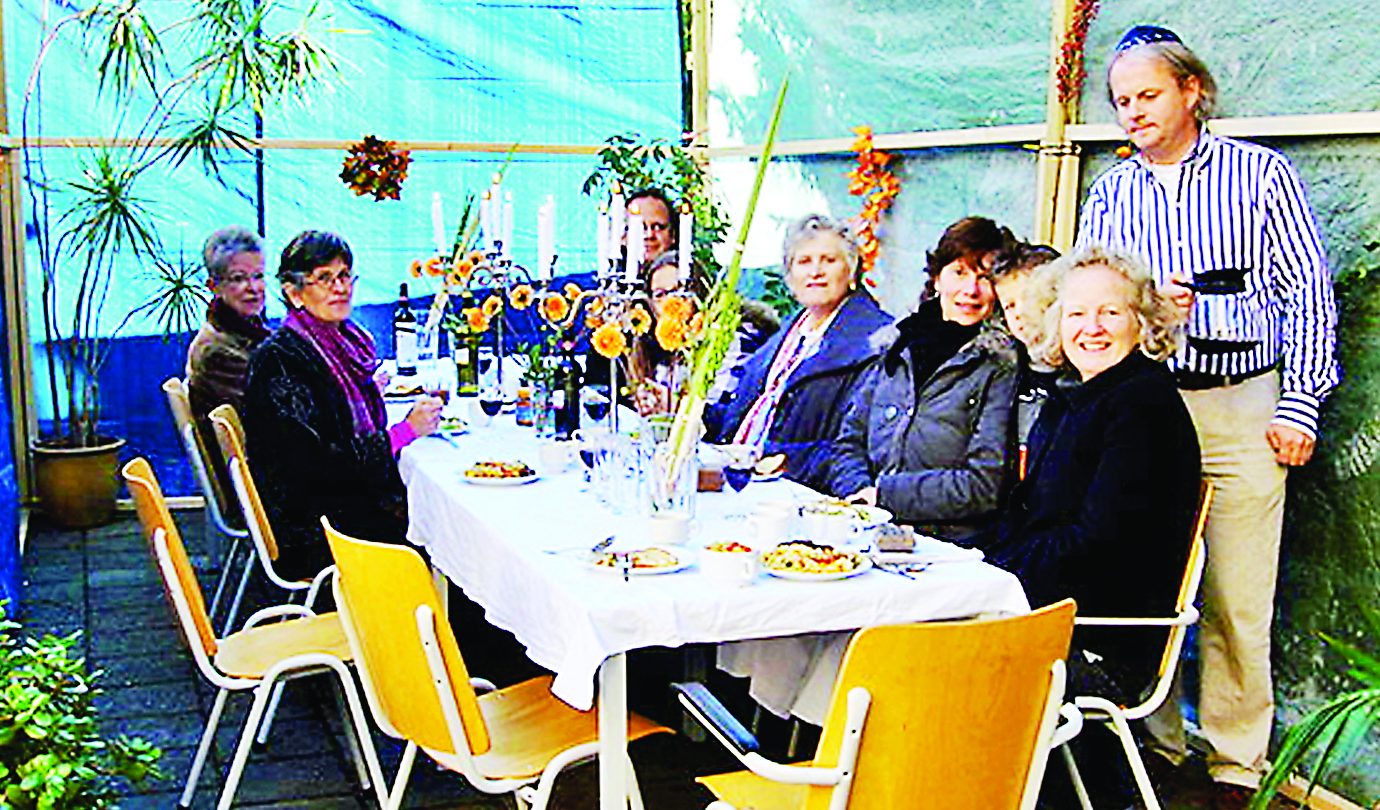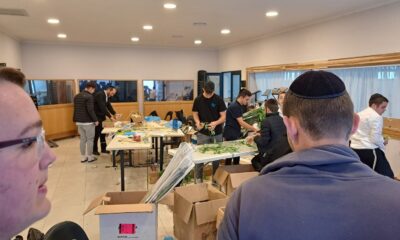
Featured Item

The meaning of life can be found in a sukkah
Every Jewish holiday plays an integral part in our lives. Be it Pesach or Shavuot, every chag on the Jewish calendar colours our daily lives in some way and shapes our perspective of current events.
But if ever there was a chag with the potential to help us get through COVID-19, it’s Sukkot.
Coming after the intensively holy days of Rosh Hashanah and Yom Kippur, Sukkot is sometimes overlooked and its significance underappreciated.
We tend to associate the holiday with flimsy constructions erected outside our homes and a fruit that closely resembles a lemon, but there’s much more to this holiday relevant to our lives under a pandemic than we might think. We just have to look to the book of Kohelet (Ecclesiastes).
Every Jewish festival is characterised by the reading of a particular Biblical text, which enhances the day by capturing certain feelings or themes which define what the day is really about.
On Pesach, we read Shir Hashirim (the Song of Songs), an allegory of the relationship between G-d and the Jewish people. During Shavuot, the Book of Ruth is read, a narrative set in the harvest period, and which relates to the festival because Shavuot also occurs at the time of the spring harvest.
On Sukkot, we read Kohelet. Written by King Solomon between 450 to 200 BCE, the book grapples with what it means to be human, and the meaning of life. For the greater part of the narrative, however, the text is seemingly characterised by sobriety and scepticism, its opening lines asserting that everything in the world is utterly futile.
For all his accomplishments, wealth, and success, Solomon repeatedly implies that no matter what man does, his efforts will always prove to be in vain, making prominent a profoundly pessimistic premise that seems at odds with the celebratory nature of Sukkot.
However, there could be more to the text than we realise. For if we look closely at what Solomon says, we may recognise that the solution to the futility of life is to embrace such a reality and learn to live in the here and now. It all begins with looking beyond ourselves.
“Kohelet could almost have been written in the 21st century,” says Rabbi Lord Jonathan Sacks, the former chief rabbi of the United Kingdom. “Here is the picture of ultimate success, the man who has it all – the houses, cars, clothes, adoring women, the envy of others – he has pursued everything this world can offer from pleasure to possessions to power to wisdom.
“Yet, surveying the totality of his life, he can say only, in effect, “Meaningless, meaningless, everything is meaningless.”
Kohelet’s failure to find meaning is directly related to his obsession with the “I” and the “Me”, says Sacks. The more he pursues his desires, the emptier his life becomes.
“Of all things people have chosen to worship, the self is the least fulfilling,” he says. “A culture of narcissism quickly gives way to loneliness and despair.”
Many of us have experienced something not unlike Solomon’s situation since the onset of COVID-19. Our priorities have been rearranged, our focus has shifted, and any belief that the self lies at the centre of everything has been proven utterly absurd. We have discovered the importance of helping others, living in the present, and finding meaning in the daily lives we so often overlooked and perhaps even took for granted.
Solomon himself ultimately finds his greatest comfort in the simplest of things, and this is perhaps what the festival of Sukkot is really about.
The sukkah itself reinforces this idea. A simple dwelling that cannot withstand strong winds, it represents the fragility of life but also champions the simplicity of the things that really matter in our everyday lives, whether we’re living through a pandemic or not.
“The power of Sukkot is that it takes us back to the most elemental roots of our being,” says Sacks. “It’s the time we ask the most profound question of what makes a life worth living.”
Having prayed on Rosh Hashanah and Yom Kippur to be written in the book of life, Kohelet forces us to remember how brief life actually is, and how vulnerable.
“Joy, the overwhelming theme of the festival, is what we feel when we know that it’s a privilege simply to be alive, inhaling the intoxicating beauty of this moment amidst the profusion of nature,” he says.
The fact that Jewish tradition maintains that the final day of Sukkot is when our judgement for the coming year is actually sealed is therefore no coincidence. Called Hoshana Rabbah, it’s considered the final day of the divine judgement in which our fate is determined. If we learn from Sukkot and the lessons of King Solomon, it stands to reason that our lot for the coming year is finalised at the end of Sukkot.
Only after having fully appreciated what we have, the lives we lead, and the fragility of life, can we fully appreciate the signing of our lot for the year ahead.
Sukkot is therefore seemingly the Jewish response to our pandemic reality. We now know what it is to live with insecurity, to develop appreciation for our friends and family, and to find joy in the everyday. The simplicity of sitting in a sukkah (built outdoors where fresh air and social distancing are more possible than anywhere else) can perhaps help us grasp the opportunity we have been afforded to better appreciate what we have, and recognise who is really in charge of our lives.










